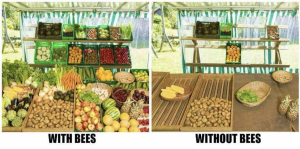This is The ChangeUnderground for the 7th of March 2022.
I’m your host, Jon Moore
Decarbonise the Air, Recarbonise the Soil!
Time displaced rewards. Those three words defined the human ability that separated us from the rest of the biological world. Clearly there are exceptions, squirrels burying acorns for later and so but as a general rule it is a good working hypothesis.
While time displaced rewards are, let’s call it, one of our evolutionary advantages, the concept does not separate us from Nature. Now while I’m on an extreme generalisation roll I’m going to define a salient feature of Nature in a few words: Redundancy not efficiency. There’s no better place to explore this than our own bodies. Two lungs, eyes, ears, ovaries/testicles, kidneys, arms and legs when clearly we could make do with only one of each. The view of an economist would suggest we could lease out, say, a lung and be fine with the other. The lunacy of this is obvious. To whom would we lease our “spare” lung? It is also worth remembering that words become twisted. In an economic sense “being made redundant” means being removed from the economic system, maybe with a payout, maybe not. “You’re redundant, the business no longer needs you.” It is a truly barbaric twisting of the word. Back to our body analogy from a “Redundancy not efficiency” point of view having a spare keeps us alive and, as far as it pertains to Nature, able to reproduce, to pass on our genes for as long as possible. Yes, I understand the menopause sort of belies this but actually it contributes to care and development of those who carry grandma’s genes. A different sort of investment but another difference in humans that has survived the tests of the evolutionary process. Continue reading →

 The big one is the continued decline in honeybee populations and mass deaths following spraying events. I’ve added a photo to the show notes on the website:
The big one is the continued decline in honeybee populations and mass deaths following spraying events. I’ve added a photo to the show notes on the website: